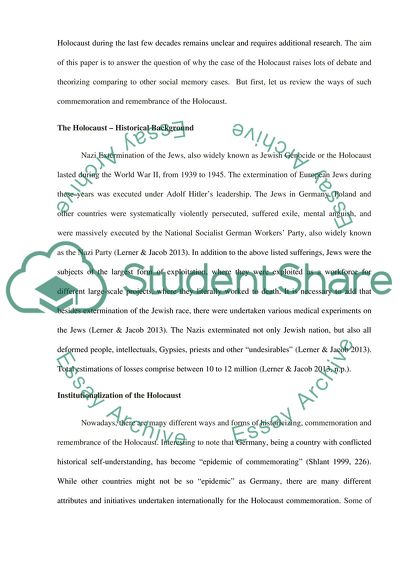Cite this document
(The Holocaust as a Tragic Trauma Drama Essay Example | Topics and Well Written Essays - 3250 words, n.d.)
The Holocaust as a Tragic Trauma Drama Essay Example | Topics and Well Written Essays - 3250 words. https://studentshare.org/sociology/1822228-why-is-the-holocaust-such-a-focus-for-public-commemoration-and-remembrance
The Holocaust as a Tragic Trauma Drama Essay Example | Topics and Well Written Essays - 3250 words. https://studentshare.org/sociology/1822228-why-is-the-holocaust-such-a-focus-for-public-commemoration-and-remembrance
(The Holocaust As a Tragic Trauma Drama Essay Example | Topics and Well Written Essays - 3250 Words)
The Holocaust As a Tragic Trauma Drama Essay Example | Topics and Well Written Essays - 3250 Words. https://studentshare.org/sociology/1822228-why-is-the-holocaust-such-a-focus-for-public-commemoration-and-remembrance.
The Holocaust As a Tragic Trauma Drama Essay Example | Topics and Well Written Essays - 3250 Words. https://studentshare.org/sociology/1822228-why-is-the-holocaust-such-a-focus-for-public-commemoration-and-remembrance.
“The Holocaust As a Tragic Trauma Drama Essay Example | Topics and Well Written Essays - 3250 Words”. https://studentshare.org/sociology/1822228-why-is-the-holocaust-such-a-focus-for-public-commemoration-and-remembrance.


